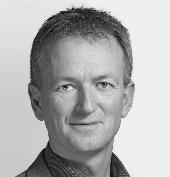Programme
-
Registration and Networking
-
Chairman’s Welcome
- Environmental Implications
-
Keynote Mandating Biodiversity – Placing the Environment at the Heart of Development
A major consideration that must be factored in to all new developments is the Government's Biodiversity Net Gain which the Environment Bill will mandate that the delivery of much-needed infrastructure and housing is not at the expense of vital biodiversity and indeed will stipulate that new developments must deliver an overall increase in biodiversity.
Biodiversity net gain requires developers to:- Ensure habitats for wildlife are enhanced and left in a measurably better state than they were pre-development;
- They must assess the type of habitat and its condition before submitting plans, and then demonstrate how they are improving biodiversity – such as through the creation of green corridors, planting more trees, or forming local nature spaces; and
- And on the rare occasions where green improvements are not possible, developers would pay towards improvement elsewhere.
-
Natural Capital Accounting - Measuring, Valuing and Monitoring Natural Capital Assets
Natural capital accounting, the process of calculating the total stocks and flows of natural resources and services in a given ecosystem or region with considerations made to:
- Determining the impact of development, which is essential in defining the No Net Loss standard or baseline;
- The need to understand the value of the natural environment;
- The quantity and quality of natural capital assets; and
- Offsetting - getting it right, understanding local plans.
-
The Natural Environment an Opportunity not a Hindrance to EIA
- How to deliver effective outcomes that work for the environment, community and developer;
- Looking beyond the effective and efficient application of due process and placing a greater emphasis on what is actually achieved;
- The need to take on a proactive role in exploring enhancement opportunities; and
- How EIA can embrace net gain ambitions and its future challenges.
-
Refreshments and Networking
- Regenerating Towns and Cities
-
Developing new communities in urban areas
- What is placemaking and why is it important?
- Examples of placemaking in practice
- How can you create community?
-
Masterplanning – Utilising Urban Design to Create Sustainable Places
- The need to understand the relationships between buildings and the spaces they create in between each other;
- Creating spaces and places that influence wellbeing, work and lifestyle;
- Maximising the interaction of systems; Waste, Transport, Energy; and
- The importance of cooperation and collaboration ensuring design meets delivery meets the need.
-
Greentown: A Detailed Feasible Study for a Future Low-Carbon Town
- Background: the scale of the need for low-carbon housing;
- The Cube Project and its extensions;
- Greentown;
- the question
- assumptions and details
- a model house
- the simulation results
- Conclusions
 Prof Mike Page PhD, BA(Oxon)
Head of the Centre for Research in Psychology and Sport Sciences, Director, Cube Project, University of Hertfordshire
Prof Mike Page PhD, BA(Oxon)
Head of the Centre for Research in Psychology and Sport Sciences, Director, Cube Project, University of Hertfordshire -
Lunch and Networking
- Integrating Infrastructure
-
Digital Technology and Machine Learning
- Data analytics, harvesting and sharing;
- Machine learning and Information services; and
- Creating interconnected infrastructure
-
District Heating and a Decentralised Energy System
- Evolving the way homes are heated and powered;
- Virtual accounting and blockchain;
- Scaling up district heating capabilities; and
- Maximising the potential of waste heat from industry.
-
Creating a Layered Approach to Transport
- Brief outline on innovative energy and transport projects in the city and how they are funded;
- Project Overview of CleanmobilEnergy
Interreg NWE and Innovate UK funded trial demonstrating a system which integrates renewable energy from Solar PV, 40 EVs (mainly vans for our maintenance, energy delivery and highways teams), 40 V2G bi-directional smart chargers with load management capability, and a large stationary energy storage system (ESS) to store and redistribute renewable energy.
-
Refreshments and Networking
- Delivering the Future Vision
-
City Visions – Brownfields are where dreams become reality
- Brownfields as a latent asset;
- Brownfield registers – a missed opportunity;
- Brownfields as unemployed land;
- Greenfields in circular land management;
- Reducing travel – increasing access;
- Building houses, workplaces and public realms for people;
- Creating places where city visions come to life
-
Managing our Natural Environment
- Investing to enhance natural capital;
- Ensuring wildlife have suitable habitats that help them thrive;
- Improving health and wellbeing; and
- Creating strong communities.
 Dr Martina Girvan
Technical Director – Ecology and Arboriculture, CoP Lead – Natural Capital, Arcadis
Dr Martina Girvan
Technical Director – Ecology and Arboriculture, CoP Lead – Natural Capital, Arcadis -
Using smart technologies and big data to create cleaner, greener cities
- EIC’s Sustainable Smart Cities workstream, operating at the intersection between smart technology and the environment;
- Supporting the market for the use of smart tech, big data, IoT and related innovations to help towns, cities and places meet environmental, sustainability and resilience challenges;
- EIC’s role as the neutral broker between the public and private sector stakeholders necessary to make projects happen;
- EIC's partnership with the Association for Directors of Environment, Economy, Planning and Transport (ADEPT).
-
Space to Build in Enfield
The CPRE London - Space to Build project shows the enormous amount of wasted space which could be put to better use in our towns and cities – particularly surface car parks and other car-related infrastructure like garages, petrol stations and even unnecessarily large or wide, or even superfluous roads and roundabouts.
- The masterplanning of strategic sites is central to meeting housing needs and tackling congestion and air pollution;
- Transport – improvements to rail network and high density, car-free development; and
- Creating high-density, mixed-use developments that do not rely on green space.
-
Chairman’s Closing Comments













